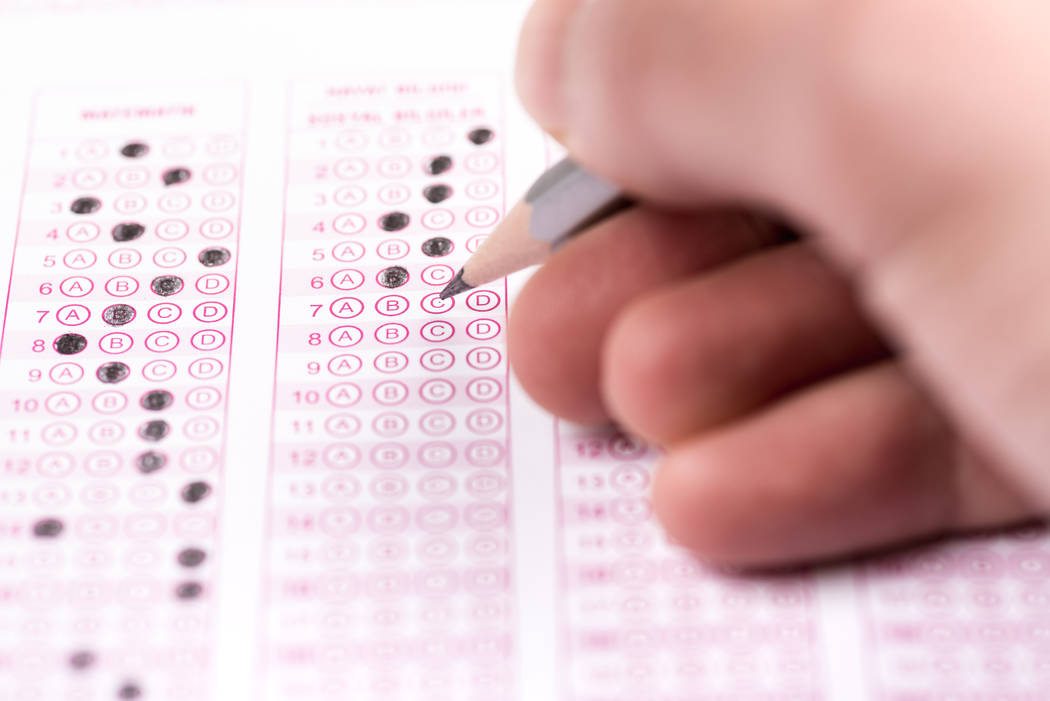EDITORIAL: Higher achievers in Clark County School District should take standardized math tests
Nevada’s student test scores consistently bring up the rear in national rankings. So why would the state exacerbate its poor showing by allowing some of its brightest students to bypass the exams?
Earlier this month, the state released testing data broken down by school for the Smarter Balanced standardized test. The results were again abysmal, particularly in math. Only 18 percent of eighth-grade students scored high enough to be considered proficient in the subject.
That slots Nevada in last place among the states that have released their 2016-17 data on the Smarter Balanced test. In addition, the scores show a sharp decline from the seventh grade, where 29 percent of students were proficient.
But education officials have an explanation for that alarming drop-off. Eighth-graders who are taking a high-school-level course such as algebra or geometry don’t have to sit for the Smarter Balanced test. They instead take an “end-of-the-course” exam to measure their academic progress.
“You’re basically removing the highest-performing eighth-graders, which is why it drops down,” said Mark Newburn, vice president of the state Board of Education.
As an example, consider Rogich Middle School, which posted the top middle-school math score in the Clark County School District, with 52 percent proficiency among all students. But as Review-Journal reporter Meghin Delaney reported Monday, only 200 of the school’s 500 eighth-graders took the Smarter Balanced exam. The other 300 were enrolled in a high-school math class — and all passed their “end-of-the-course” test.
Had those 300 kids also taken the Smarter Balanced test, the school’s math ranking would no doubt have been much improved.
The fact that the most accomplished middle school in the district still has a significant number of kids who can’t pass a basic math test is disturbing, but that’s an issue for another day. The question is: Why would a state that’s already struggling from an educational standpoint intentionally make the situation look even worse?
“This is a double-edged sword,” Mike Burton, the district’s chief academic officer, told Ms. Delaney. “You’ve got schools that want to show better results to the public, but to make that happen you have students who have to double test.”
But so what? Concerns about “overtesting” shouldn’t override efforts to get an accurate picture of whether state students are meeting the necessary benchmarks.
Besides, many high-achieving students actually welcome tests, viewing them as helpful motivational and self-assessment tools vital to identifying personal strengths and weaknesses. Rather than being burdened by two math exams, plenty of these kids would relish the challenge.
A precise assessment of student achievement is integral to Nevada efforts to improve educational progress. Shielding kids from exams is counterproductive to that end. Make the advanced eighth-graders take the second math test. They can handle it.

















